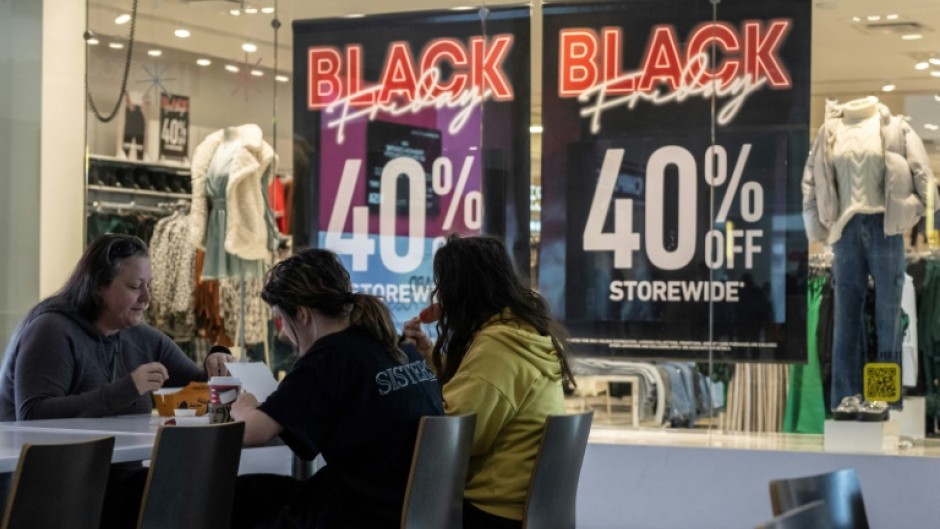NEW YORK - The retail sector's efforts to entice holiday gift purchases builds to a crescendo this weekend with the annual "Black Friday" shopping day followed by the newer "Cyber Monday."
This year's big post-Thanksgiving sales day -- a custom increasingly adopted in Europe and other markets -- comes amid lingering unease over the economy, despite still-low unemployment.
As a result, markdowns are expected to be especially deep, reflecting the pressure stores are under to lure US consumers jaded by still-high inflation for some goods and lingering effects from Covid pandemic upheaval.
Forecasters expect heavy consumer traffic. The National Retail Federation (NRF) predicts more than 182 million consumers will shop in stores and online over the shopping weekend.
That turnout -- equal to more than half the US population -- would top by 16 million last year's level and constitute a record since the trade group began tracking the period in 2017.
While Black Friday itself remains crucial, stores have actually been offering deals for weeks, marketing Black Friday sales earlier and earlier in October.
The early bargains reflect hyper competition among retailers trying to win over consumers inundated with offers in digital spaces.
"Consumers will not sit out, but they will spend less," said Randy Allen, senior lecturer at Cornell University's SC Johnson College of Business,
"Retailers are concerned," Allen said. "They have been promoting 'Black Friday' deals over the last two weeks. They are trying to capture the consumers."
Some shoppers in the know will hold off on major purchases until closer to Christmas.
For consumers fixated on snagging the best deals, "it likely pays to hit the snooze button," advised a Wall Street Journal article that cited experts who recommended waiting until December for bigger markdowns.
With inflation for groceries and other staples still a factor, many shoppers will only buy items if they are on sale.

